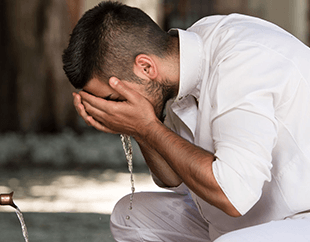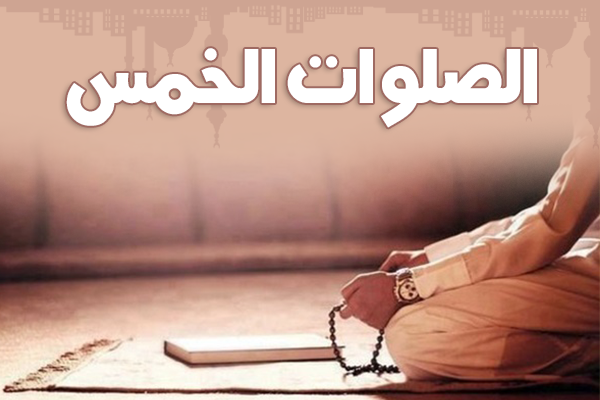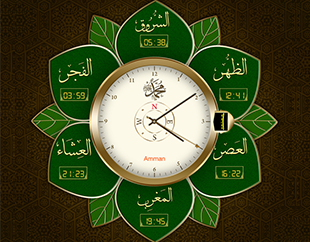
Arabic glossaries define ablution as grace, cleanliness, and enlightenment, Islamic Scholars define it as the procedure for washing specific parts of the body in a specific way with the intention to obtain purification. The reason why they call it Wudu’ (abolition) is its role to confer purity, cleanliness and enlightenment to the four concerned body-parts, the face, the hands, the head and the legs. Ablution is closely coupled with Salaat, it was reported that The Prophet (pbuh) said in a Hadith: “The prayer of a person who does Hadath (passes urine, stool or wind) is not accepted till he performs the ablution”
How to perform ablution
The first thing that a Muslim does before Wudu' is the intention. He intends to perform ablution in his heart and says Bismillah (In the name of Allah). Then he should wash his hands three times, starting with the right hand, and then he rinses his mouth three times with water, after that he sniffs up then blows his nose with separate scops of water, and then he washes his face three times from the root of the scalp hair to the chin, and from ear to ear, and then washes his hands to the elbows three times starting always with the right hand, then wipes his head once, as well as his ears, and then washes his feet to the ankles with passing water between the fingers. After he finishes Wudu’, he pronounces the Shahada and then says: "Oh Allah! Include me among those who repent and those who keep themselves pure".
Duties and obligations of Wudu’
Ablution has seven obligations, the first concerns the intention which emanates from the heart, where the Muslim intends to remove the Minor ritual impurity (Hadath Asghar) by performing Wudu 'or purifying the prayer or so, the second is washing the face with water and passing it on the hair of eyebrows, mustache, and beard, the third is washing hands from fingertips to elbows, the fourth is to wipe the hair or the skin of the head, the fifth is washing the feet to the ankles, the sixth is the immediate continuation between the acts of Wudu’ without lassitude or separation between them, and the seventh is rubbing and massaging the washed body-part by passing the hand over it.
Sunnah practices of Wudu’
Wudu' has many Sunnah practices, first is starting by Basmallah (In the name of Allah) while starting ablution, the second is washing the hands before putting them in the pot of Wudu’ , the third is rinsing the mouth with water then spit it out, the fourth is the use of Siwaak following the example of the Prophet (pbuh), the fifth is Istinshaak which is sniffing water up and squeezing it out of the nose (there is no harm if this act is exaggerated outside the period of fasting), the sixth is Istinthar which is snuffing up water into the nostril and blowing it out again, the seventh is wiping off the ears from the inside and out, the eighth is the tripling of every act during ablution by washing each member three times, the ninth is wiping the head from the front, and the tenth is water-saving during ablution.
Nullifications of ablution
The nullifications of ablution are the things that if done –one or all- by the Muslim, then he had to renew Wudu’ again, the first is the excretion of either urine, emission of flatulence or stool, the Almighty has said:"Or one of you cometh from the closet", the second is the absence of mind, due to madness, drunkenness, fainting or heavy sleep, the third is touching the anterior and posterior private parts with the hand because the Messenger of Allah (pbuh) said: “Whoever touches his private part, let him perform Wudu'" , and the fourth is washing a dead body according to most eminent Islamic Scholars.
Reprehensible acts of ablution
Ablution has several reprehensible acts, if the Muslim avoids them then his Wudu’ is good, and if he commits these acts then there is no harm in it. The first act is performing Wudu’ in a filthy place, the second is excessive use of water, the third is vain talk during Wudu', and talking without the remembrance of Allah, the fourth is exceeding three times for the member that needs to be washed and exceeding one time for the member that needs to be wiped, the fifth is to start with the rear part instead of the front part of each member, the sixth is to uncover the pudenda (private parts) during the Istinja* (clean oneself after defecation), and the seventh is to wipe the neck because it has no basis in religion, and the eighth is neglecting one of the Sunnah practices of Wudu’ wittingly or unwittingly.
PS: Istinja is the Arabic term for cleaning away whatever has been passed from the urethra or anus with water, toilet paper or both.
Written by: Amine Hilal



Comments